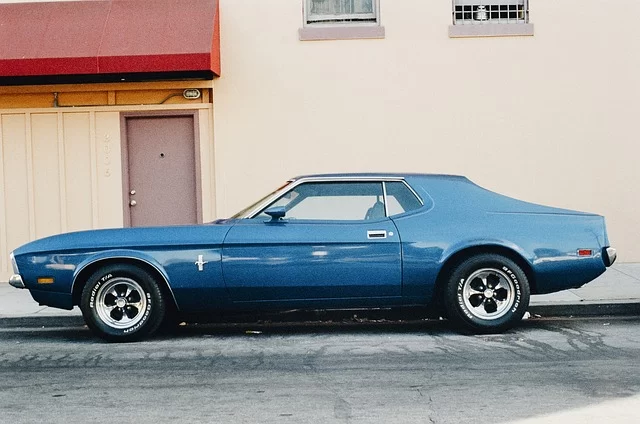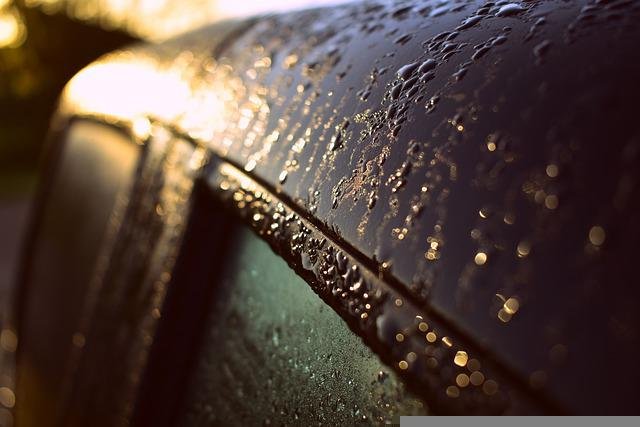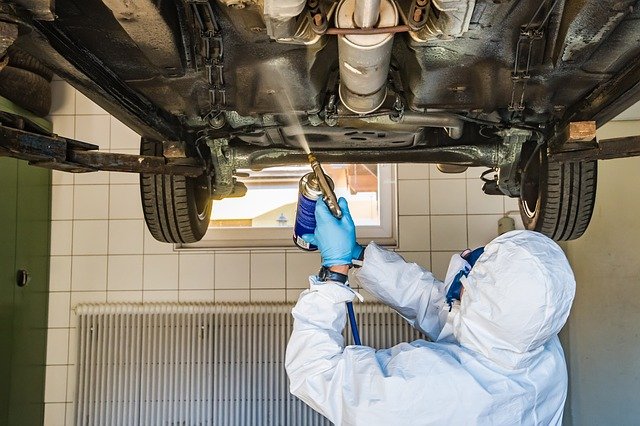Learn how to take good care of your car
Learn how to take good care of your car and make it last for many years.

If you adore your car and want it to stay in your life for as long as possible, you must take excellent care of it. Going for a drive today in a car you bought 30 years ago that still looks fantastic will bring you a lot of joy, personal pride and satisfaction.
Living near the beach can damage your car

Although having a beachfront home is wonderful in many
ways, it can be very harsh on your car. If you live near the beach, take some
precautions to protect your car from severe damage via the sun and salt air.
The hotter months of the year will most likely cause increased damage to your car’s finish, as the hot sun bombards your car with ultraviolet rays, causing chipping, cracking, and fading.
The hot sun, oxygen, and salt air can cause oxidation of your paint, causing it to lose its oil and dry out, increasing the amount of salty moisture in the air that can be absorbed and, ultimately, causing increased levels of corrosion to your prized possession.
Make the most of beach life by going for your morning surf and a jog along golden sands, but keep in mind that all of this comes at a cost when it comes to your car, which will require a higher level of care.
Even though modern vehicles contain a lot of plastics, they are still made from a variety of metals and alloys. When you live near the beach, the structure and components of your car, such as the chassis, body, panels, doors, shock absorbers, brake calipers, and windscreen frame, can corrode at higher than normal levels.

Living on the coast during the autumn months can be tough on your vehicles as well, as it is peak dew season and the water droplets on your car will be contaminated from the salt air, causing corrosive salt water to be on your vehicle in the morning, posing an increased risk of corrosion.
The longer your vehicle is exposed to the elements near the ocean without adequate protection, the more damage it will sustain. It may take three to five years for a new car to show signs of damage, but it is foolish to wait that long before protecting your vehicle.
What can you do to protect your car from the Salt Air when living at the beach?

Electronic rust protection kits for your car can be purchased for around $400 and provide approximately 80% protection. They prevent rust from forming, but the manufacturers of these products cannot completely guarantee that rust will never form because vehicles differ in construction materials, build quality, and any build defects.
However, if you supplement the increased rust protection provided by these kits with 6 monthly underbody spraying with oil, wax, or tar based coatings, the application of paint protection film to your car, and regular washing, you can be confident that you’ve done most things possible to care for your car.
You can wax your car after applying paint protection, but there are some restrictions. You must ensure that any wax you use does not contain more than 5% kerosene or naphtha. Avoid waxes that contain dyes as well.
Don't keep driving your car with an empty fuel tank

Most people understand that it can be difficult for students and other young drivers to afford the cost of filling up their fuel tanks. What’s difficult to understand is why it’s so difficult to keep it topped up as you use it.
Too often, youngsters will let their fuel tank get almost empty before putting $10 or $20 in it just to get around. If they knew just how much damage that was causing to their car, they would realise that once they get it filled up, they should keep it full by always putting that same $10 or $20 in it each time they use it.
How much damage is caused by letting your car fun out of fuel?

Running out of fuel may cause your fuel pump to fail prematurely.

When your fuel runs out, your fuel pump may become clogged by dirt and sludge it sucks up from the bottom of the tank, often necessitating an expensive replacement. You could easily spend $300 on a new fuel pump, and it will probably take a mechanic 2 to 3 hours to replace it. Depending on the prestige of the vehicle and the workshop, you could pay a mechanic an hourly rate anywhere from $100 to $280 per hour. The best-case scenario for replacement costs is around $500, but there is also the issue of where your car breaks down.
If your fuel pump fails 80 kilometres from the nearest mechanic workshop and you need a tow truck to get there, you should budget around $160 per hour for those costs. You would be charged for the time it takes to drive to your location and then to the nearest workshop, which could easily cost you $320. Depending on what time of day your car breaks down, you may have to wait until the next day for repairs and may have to pay for overnight lodging. That will add another $150 to the bill, not to mention the cost of food or anything else you might need for that night. You’ve probably not prepared for a breakdown far from home, so you won’t have a change of clothes or toiletries with you, making the entire experience very costly and unpleasant for you.
You now face a minimum total cost of around $1,000 for failing to be disciplined and keep your fuel tank full rather than empty. You’ll no doubt reflect on all the times you chose to spend your money on entertaining yourself rather than putting fuel in your car and realise that you had your priorities a little backwards.
Running out of fuel may cause your fuel injectors and filter to clog up.

If you allow the sludge that collects at the bottom of your fuel tank to be sucked up by the fuel pump and fed to the engine, your fuel injectors and fuel filter may quickly clog up. This may cause very rough running and greatly increase the likelihood of your car breaking down on a busy motorway.
Motorways are a very dangerous place for your car to fail and at the first sign of engine trouble, head for the nearest exit as soon as possible. It’s critical to get your car as far away from motorway drivers as possible because they rarely stick to the speed limit, and if they were to collide with your broken down vehicle, the outcome could be disastrous.
Aside from the safety implications of failing to exit the highway before your car comes to a stop, there could be significant financial consequences. Although some motorways provide free breakdown services to keep everyone safe, this is not always the case. You may end up paying for a tow truck and as an example, let’s suppose the tow truck costs $300. If we then consider the worst-case scenario for your injectors and fuel filter, you could be looking at around $1,500 for these replacements (labour inclusive). This scenario could set you back $1,800.
Running out of fuel may put at risk of being targeted by criminals

Although it is unpleasant to consider, breaking down on the side of the road may make you a target for criminals who come across your situation.
If you are robbed or injured by a criminal who exploits your breakdown situation in a remote area, you may find yourself in need of medical assistance without your phone, money, or financial cards, and with no idea when help will arrive. If this occurs at night, it may take longer for someone to arrive and assist you.
Consider your safety and keep your fuel tank full to avoid this situation.
Take good care of your Automatic Transmission


An automatic transmission is one of the most complex and expensive components of a vehicle, yet it is also one of the most neglected.
Your transmission is a sophisticated unit that manages how much power is sent from the engine to the drive shaft. Due to the heat and friction generated by its numerous moving parts, it sustains more wear and tear than many other parts of your car.
Automatic transmission fluid has properties that support high lubrication performance, including specific viscosity properties, the ability to withstand high operating temperatures, and fluidity levels that ensure effective operation in cold weather. Transmission fluid, like motor oil, degrades and loses properties over time.
Deposits in the transmission pan can shorten its lifespan, which is why the transmission filter is so important. Transmission filters normally filter these deposits out and, as a result, become clogged with these deposits over time. This is why a clogged transmission filter in a car is a serious issue that should be addressed as part of a regular service.
Because of the complexity of automatic transmissions, minor issues can sometimes lead to complete unit failures; therefore, regular servicing is essential.

Automatic Transmissions should be serviced about every 24,000km or 15 months, whichever comes first. You may feel that transmission servicing is little expensive to do on a regular basis but it’s a lot cheaper than allowing it to fail.
A transmission service, which typically entails draining the fluid, removing the transmission pan, replacing the filter, inspecting the hydraulic clutch, planetary gear train, and hydraulic control for evidence of component wear or potential failure, and then replacing the fluid, can range from $500 to $1,500.
If your gearbox slips, it could be due to a lack of transmission fluid, burnt fluid from overheating, worn out fluid, or a fluid leak; if you notice any of these symptoms, take your vehicle to a reputable mechanic as soon as possible. Check your transmission fluid level on a regular basis, ideally once a week, along with your engine oil, engine coolant level, brake fluid level, wiper wash fluid, and tyre condition and pressures. A slipping automatic transmission is a sign of impending failure.
Noises in neutral or when shifting, whining noises when accelerating, humming noises in normal driving, burning odours, rough shifting, difficulty shifting in and out of gear, or if the check engine light illuminates are all symptoms of automatic transmission problems, and some of these are associated with pending failure. You should take your vehicle to a reputable mechanic or an automatic transmission specialist workshop as soon as possible to have these issues investigated and corrected.
When your automatic transmission is serviced the fluid is first drained and it is checked for the presence of metal shavings. While shavings in the fluid may be the result of relatively normal wear, it is generally regarded as a sign of elevated component wear.
If no metal shavings are found in the fluid, the transmission service could be completed in a matter of a few hours and for as little as $500. If metal shavings are discovered, the prognosis is usually not good, and the service technician must determine the source of the wear and how much life the transmission has before it needs to be rebuilt or replaced. This could take a few days and cost up to, and possibly more than, $1,500.
Depending on what is discovered, the risk of delaying the rebuild or replacement may be too great, and you will be given a quotation to rebuild or replace immediately. Alternatively, the workshop may determine that you have a certain number of driving kilometres before this work is required, in which case you will be given a quotation that gives you an idea of when it needs to be done as well as the costs associated with rebuilding or replacing the transmission and will have the opportunity to save this money.
Transmission rebuilding costs are typically much less than transmission replacement. Depending on the motor vehicle, a rebuilt transmission can cost anywhere from $1,500 to $4,500 and a new unit can cost anywhere from $2,000 to $9,000.
Contact Us


